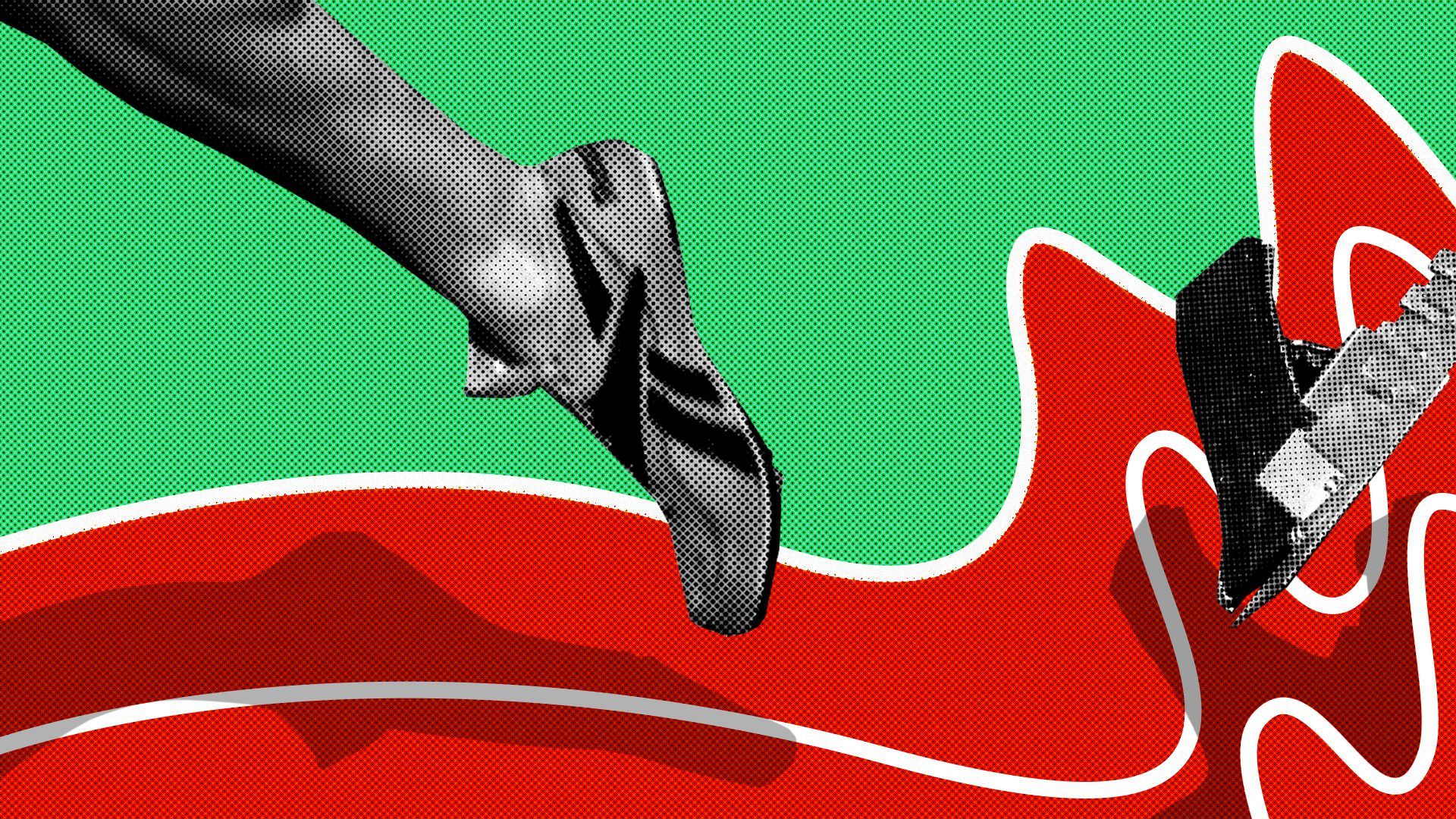The cyborg Olympics
Add Axios as your preferred source to
see more of our stories on Google.

Illustration: Annelise Capossela/Axios
The Olympics are designed to showcase the frontiers of human athletic achievement, but technology has always played a role in helping athletes push the limits.
Why it matters: With some data suggesting that pure human athletic ability in many Olympic events may be plateauing, technology will become even more important to helping the best become better.
What's happening: Records are meant to be broken, and at the Tokyo Olympics, they've been falling in droves — especially on the track and in cycling.
- In the 400-meter men's hurdle, Rai Benjamin of the U.S. beat the world record — and still finished second when Karsten Warholm of Norway went even faster.
- In the men's team pursuit track cycling event, Denmark set an Olympic record in the qualifying heats only to lose in the finals when the Italian team blazed past the world record.
Between the lines: The events where world records fell most frequently at Tokyo tended to be those where new equipment or even better surfaces could play a bigger role.
- Track stars like Warholm have benefited from using "super spikes" designed for sprint events, while the spongy track at Tokyo is "the most technologically advanced athletic track in the world," according to the company that designed it.
- Even in an event as fundamental as archery, South Korean Olympians set multiple world records thanks in part to better bow and arrows made with the support of Hyundai.
The other side: World records in throwing and jumping field events — where technology plays less of a role — have been much harder to beat, lasting for an average of more than 23 years.
- But there's a technological side to this as well, albeit a dark one — many of the existing records were set between the 1970s and 1990s, when doping of athletes went largely unpoliced.
